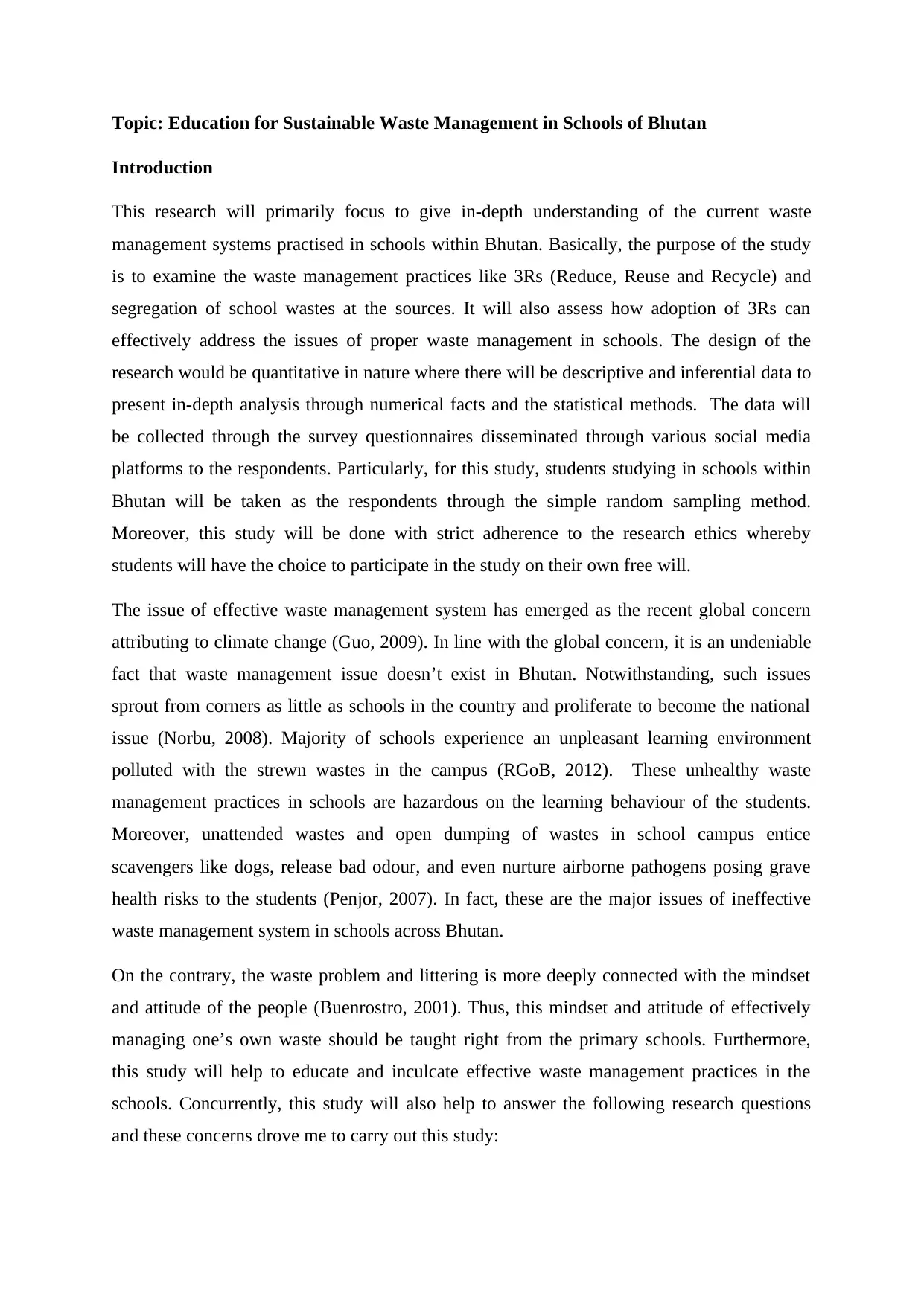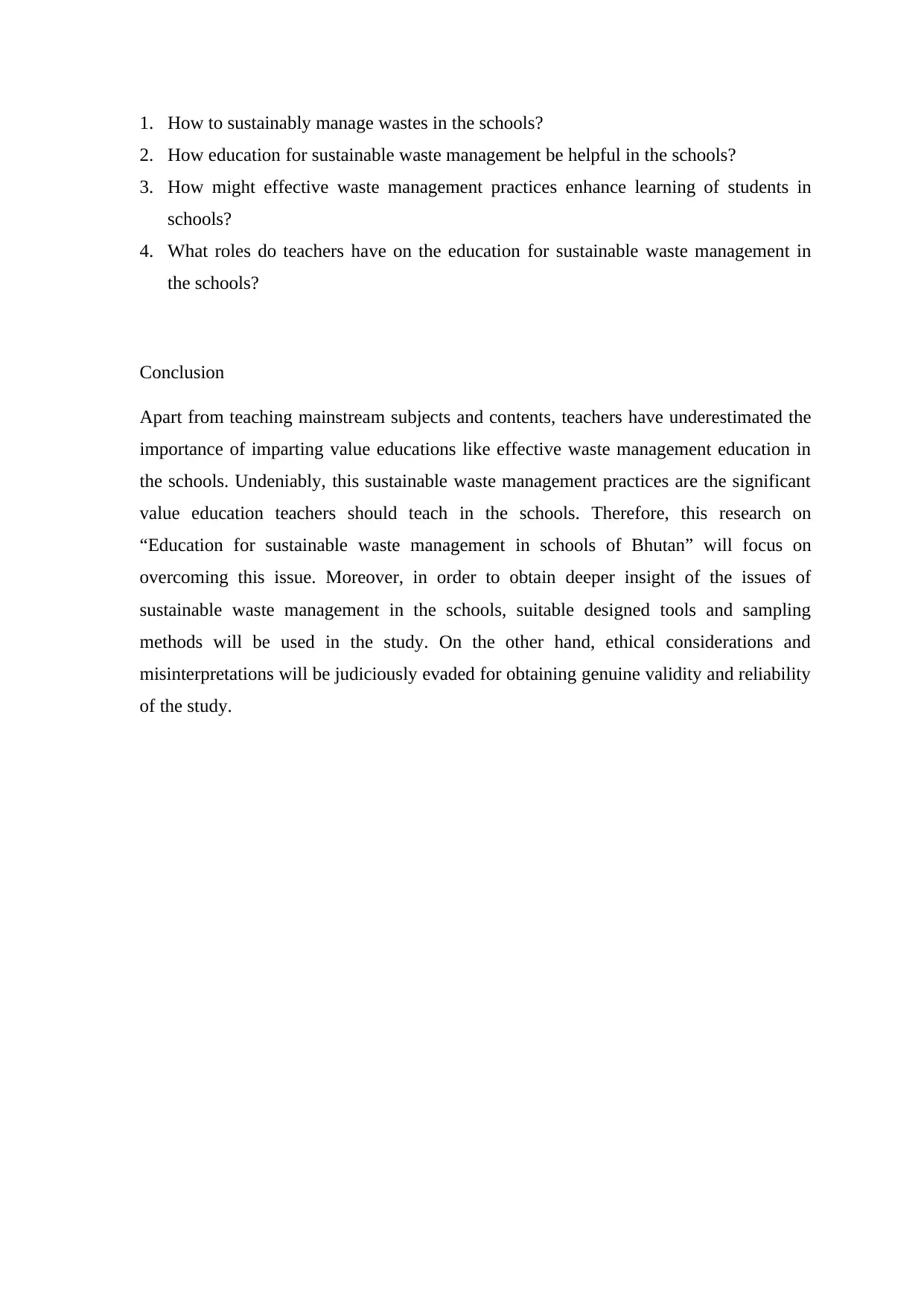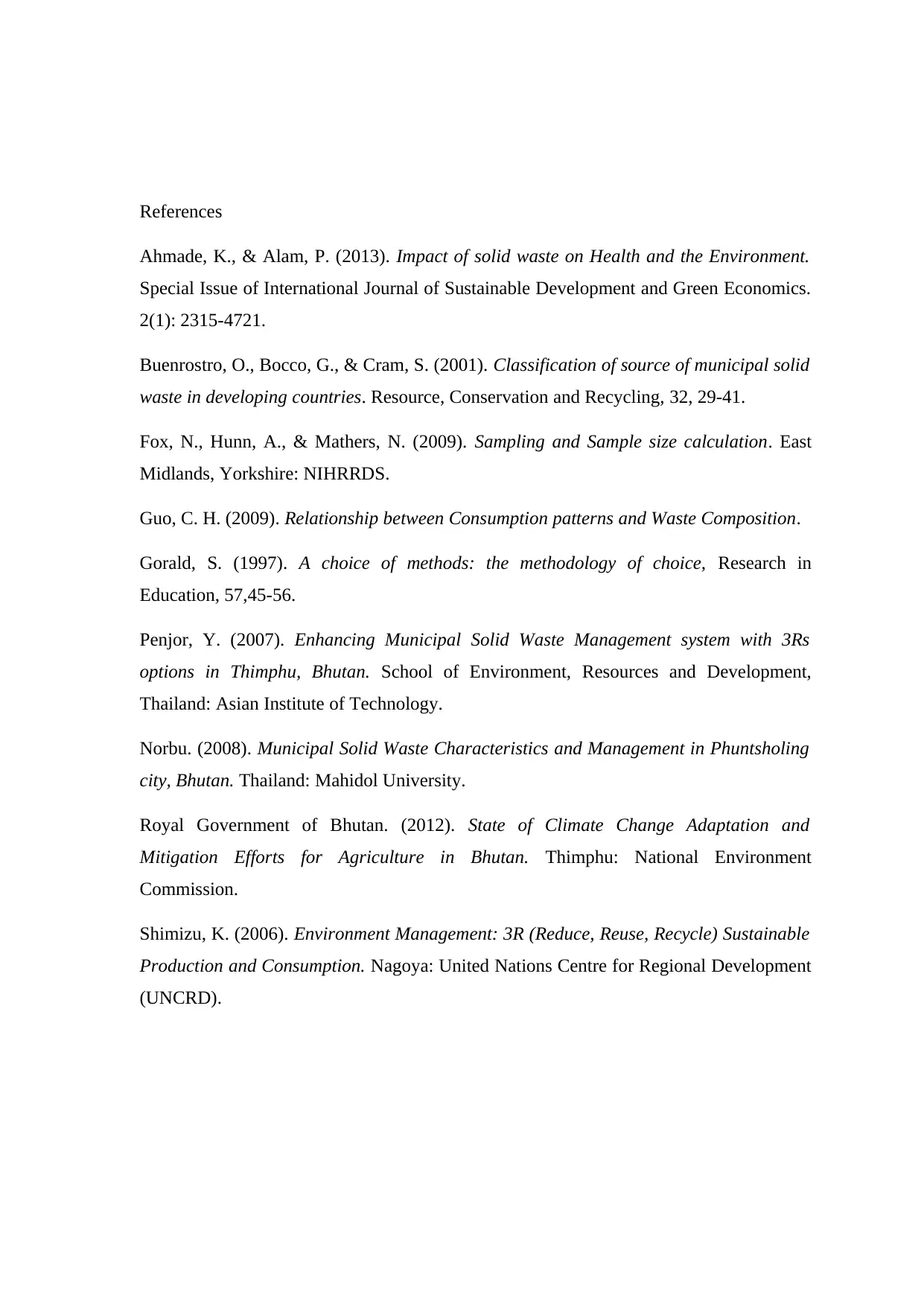Education for Sustainable Waste Management in Bhutan Schools
VerifiedAdded on 2022/09/02
|3
|896
|25
Report
AI Summary
This report delves into the critical issue of waste management within schools in Bhutan, focusing on the implementation of sustainable practices like the 3Rs (Reduce, Reuse, Recycle) and waste segregation. The research, quantitative in nature, aims to assess the current waste management systems and the impact of these practices on the learning environment. The study, conducted through surveys with students, explores how effective waste management can enhance student learning and the role of teachers in promoting sustainable practices. The report highlights the negative impacts of improper waste management, such as health risks and environmental pollution, and emphasizes the importance of early education in waste management. The conclusion underscores the need for teachers to integrate value education, including effective waste management, into the curriculum to foster a sustainable and healthy learning environment.
1 out of 3










![[object Object]](/_next/static/media/star-bottom.7253800d.svg)